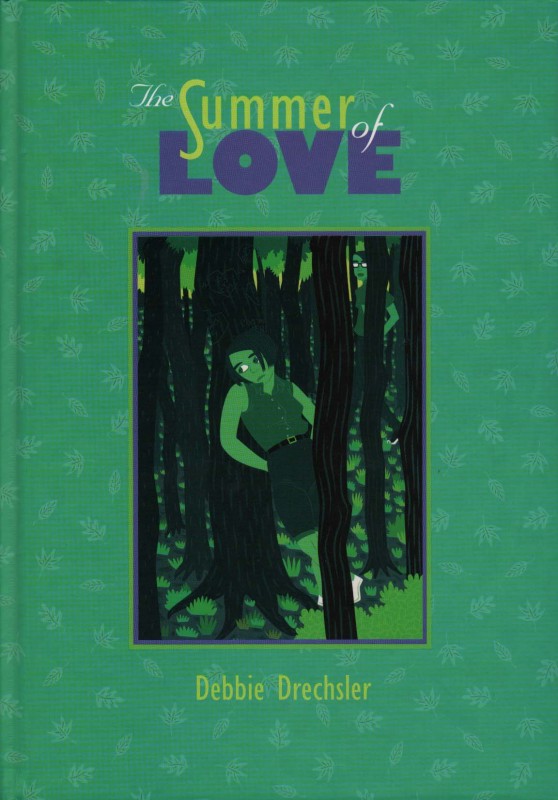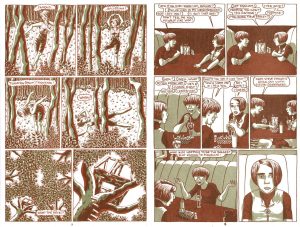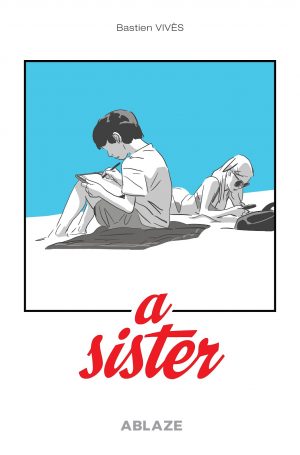Review by Ian Keogh
Lily is the middle of three sisters who’ve moved home in early summer, with the music references indicating the time period as the mid-1970s, although in all other aspects their new town is deliberately portrayed as timeless, or generic. Lily’s initial views are damning, but getting to know Steve leads her to have a more positive view of the town.
The Summer of Love is a coming of age story, one of sexual awakening, but not just the obvious connection of Lily and Steve. Everything is portrayed as seen and experienced by Lily, and the clumsiness of teenage interactions is well observed, with the honesty of Lily’s feelings regarding the enjoyment of sexual fumblings standing out. It leads to some poor choices. The story’s first half concentrates on Lily and Steve’s laboured contacts, meaning The Summer of Love is dragging a little by the time Debbie Drechsler widens the horizons.
Drechsler’s art is the saving grace of earlier chapters, in the tradition of 1960s underground cartooning with attention to surroundings and emotionally strong people, if a little large-eyed. An awkward combination of red and green on the opening chapter (sample spread left) looks as if the intention is to present 3-D pages, but it gives way to easier on the eye autumnal Earth tones, although they’re a strange choice for a story titled The Summer of Love. Still, summer is only the start of proceedings.
As the year progresses Lily starts school, and rather than cementing relationships, it fractures them, Drechsler bringing out well how casual lies of bragging boys can have a devastating effect on girls, and how once rumours spread, they become taken as truth. Everything builds to the horror of the high school dance.
The choice to make the entire story revolve around Lily means other relationships aren’t fully explored, but an emotionally drenched startling final chapter brings them back into focus. It’s with the ending that Drechsler’s matter of fact understatement achieves full impact, presenting a distressing parade of bullying and slander, presumably still endemic to high school culture. The Summer of Love starts too slowly, but simmering tensions eventually seep into common knowledge for an evocative finale.






